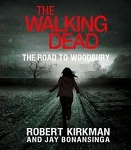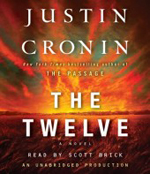
 The SFFaudio Podcast #346 – Jesse, Paul, and Marissa and Luke Daniels talk about The Man Who Japed by Philip K. Dick.
The SFFaudio Podcast #346 – Jesse, Paul, and Marissa and Luke Daniels talk about The Man Who Japed by Philip K. Dick.
Talked about on today’s show:
When did Luke record The Man Who Japed?, a spate of Dicks, a good six months, generic knowledge, Dick’s writing is like Jack Kerouac’s, Now Wait For Last Year, Dick’s favorite The Man Who Japed, not Marissa’s favorite The Man Who Japed, post nuclear war, censorship and morality, the three-way war before Earth the Starmen and the Reegs, JJ-180, swimming through time, Eric Sweetscent, Alan Purcell, minor-Dick, it’s a big jape, the novels blend together, classic Dick, Allen’s ambivalence, it feels long for a short book, the corporate stuff, Dick’s women are never “flat” they are either “dumpy or perky”, girls and gals, full present or drugged up there’s always a wife, they love each other, loyal and sweet, home development, something pedantic and yet timely, something you’ve never seen, what’s happening in China at the time, living in a condo…, when I first moved into my conapt, a note under the door, “you have ruined my marriage”, using new found powers to search for nude women, you teach a man how to fish he has sex with that fish, council meetings, gossip, condominium apartments, how do people live together, overpopulation world, his bedroom turns into a kitchen, she’s putting her clothes in the oven, Billenium by J.G. Ballard, Make Room Make Room by Harry Harrison, Hokkaido is a radioactive wasteland, Newer York vs. New New York, drugs, how Dick writes the book, undercooked, free will, “it just happened”, a former NHL enforcer, the psychiatrist, memory, A Scanner Darkly, his propaganda job, the juveniles (the robots), “inDickitave”, a society running on fumes, extra-Solar colonies, you don’t want to stand all the way do you?, the big jape, how Dick’s vocab works, the title if it was written today “The Man Who Punked”, the alternate reality, Talking Heads’ Once In A Lifetime, the consequences here, the ending, the faces of the teenagers, as a narrator, what is Allen seeing in the faces of those teenagers?, Allen was always trying to protect people, immigration to Canada in 1988, how harsh the immigration officials were, skimming off the cream, oh you’re an audiobook narrator… ok, a couple Brit narrators are up in the seed vault in Svalbard, The Prisoner episode “A Change Of Mind”, unmutual, conforming drugs, writhing, adultery can get you kicked out of your lease, Mao as Major Streiter, The Three Body Problem, The Red Violin, juveniles -> Juvenal (the Roman satirist), teenagers as opposed to juveniles, the Cultural Revolution was pushed by kids, everything pulling toward the center, The Americans, the world “soviet” means committee, the cohorts (are kids), how Nazi Germany worked, Nazi youth in The Netherlands, kids acting like little-SS, witch hunts, more American than Dick admits, V, a very soft version, no-death camps, slave labour, nobody watches TV in the colony worlds, the spire and the statue of Major Streiter, Colonel Gaddafi character, General Washington and the Washington Monument, can you imagine state TV making fun of Ronald Regan, humour vs. the dictatorship, every authoritarian government, Mr. Whales is rewarded with another apartment, oomphalos, the center, the more morec you are, anti-morec, in anticipation of the big jape…, Dick japes the reader, active assimilation, the cultural revolution, like evil-BBC, the poll, this is the emperor’s new clothes, Jonathan Swift, it’s something Ronald Regan would do!, if it was good enough for the founding fathers…, if John Adams and the founding fathers were all cannibals, it was a different time, he was really good to his slaves (food), turning it into a joke, society is obsessed with propriety, is this the start of the fall of this society, dystopia, optimistic ending, when the cohorts arrived their reaction was to laugh, “Repent Harlequin!” Said The Tick-Tock Man by Harlan Ellison, like Metropolis, infected with laughter, this happens all the time in SF, science fiction like satire, Dick was going on and on about not being a Marxist, timelessness, a crapsack world, a tiller, The Space Merchants, that’s Madison Avenue taking over society, food isn’t really food anymore, the food is always in quotation marks, simulated “baked Alaskan”, we have all the things he was writing about, an artificial meat, tofu has long been with us, simulant meat, Secret Army, ‘Allo ‘Allo!, this isn’t real coffee, WWII is the really big start of all artificial foods, chicory coffee, after WWII Korea and Japan get Spam, Spam restaurants, Minnesota is the home of Spam, it reminds you of your youth, coming to love the crappy stuff that you have, we come to love the crappy worlds Dick creates, the radioactive island, Hokkaido is full of ideas, where’s the government?, society is just kind of null, not total totalitarianism (bottom up), there isn’t a death in the book, a surprisingly soft dystopia, busy-bodied woman, anything over 20mph is terrifying, milquetoast, The Coming Of The Quantum Cats by Frederik Pohl, a pro-Muslim Christian American theocracy, a prim 38mph, the Harvard Law review (on the Black Market), I The Jury by Mickey Spillane, “I Shot Her In The Uterus”, The Killer Inside Me by Jim Thompson, Guy de Maupassant, “breasts like two cones of white marble”, James Joyce, $10,000 for Ulysses, the sickness, The Grifters, Donald Westlake, how to advance your career in business by killing people, the mental health planet, an alternate world that’s not real, “but I only have $50!”, the missing 15,000 words, getting stuck in debt is a kind of dystopia, Mavis, taking care of cows, clean activities, soul sucking grinding horrible, the interrogation that happens there…, full of resentment, anonymous accusers, an open marriage, a c-class Dick novel, needs a little more spiced, not fully poached,
It is hard not to write Satire. For who is so tolerant
of the unjust City, so steeled, that he can restrain himself…
and
Pathic men that pretend to be moral exemplars are much worse than those who are open about their proclivities.
he’s talking about Republicans, the “wide stance”, puritanism, strider -> Streiter, making choices, that’s what this book is about, just wing it, self-assured hubris, “he’s an idea, not a man”.
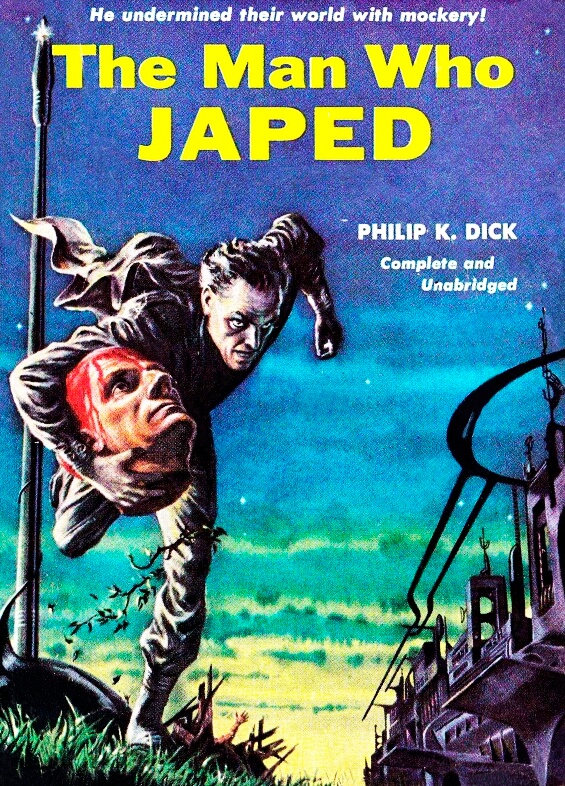
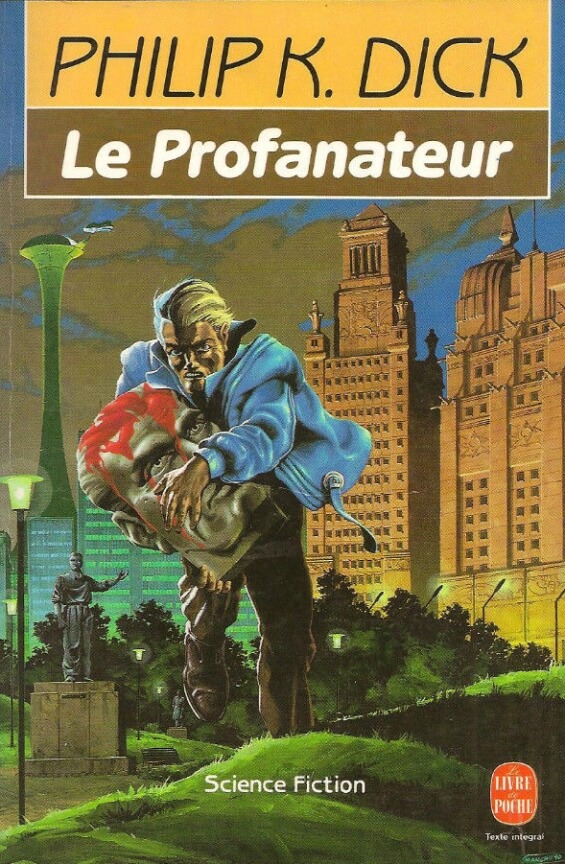
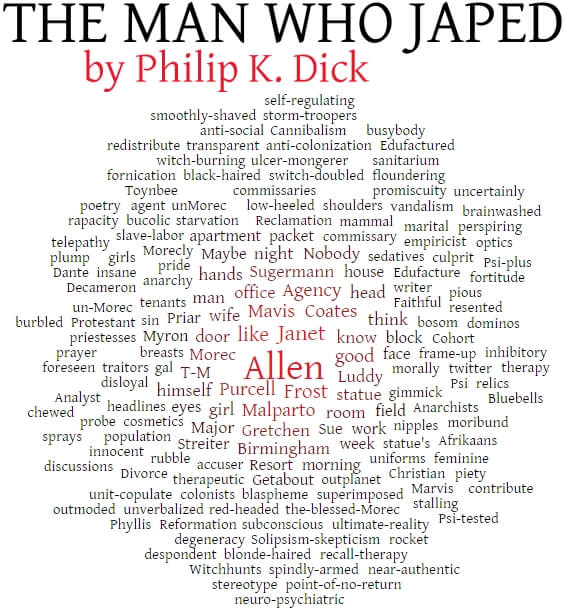
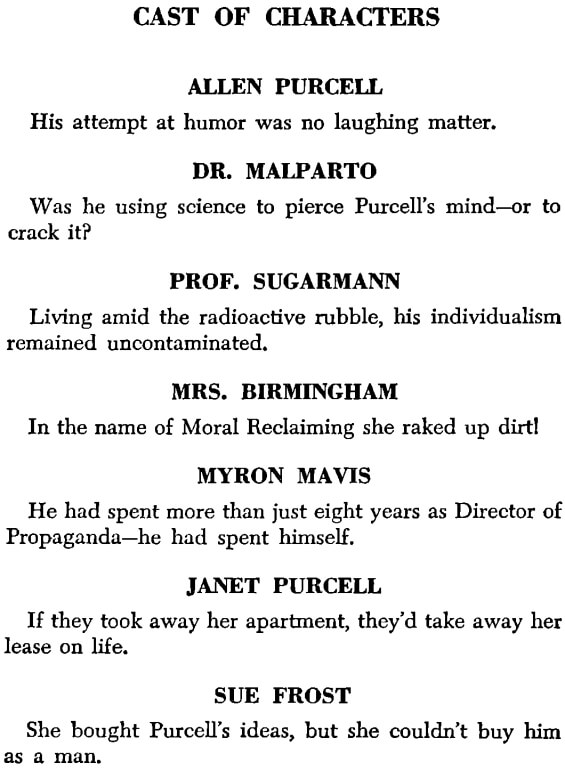
Posted by Jesse Willis

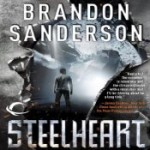
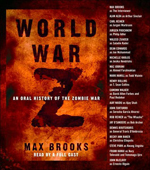
 The World Jones Made
The World Jones Made